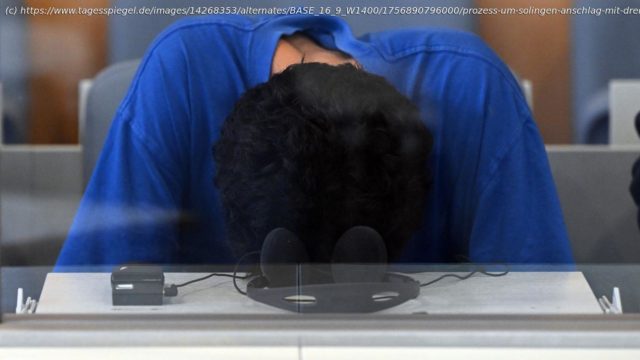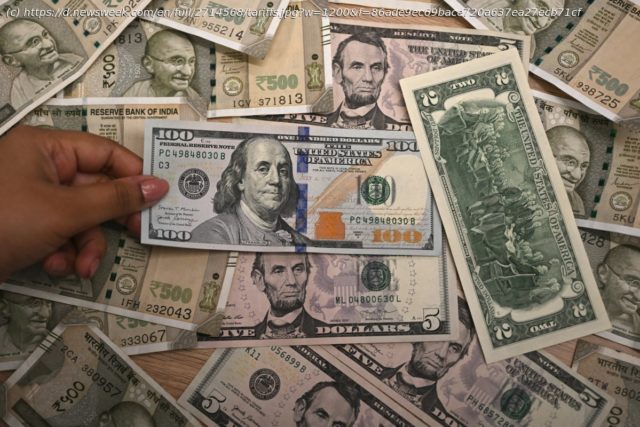„One of the things that stood out to us was the drop in confidence, especially as we look at this year versus last year,“ a marketing expert told Newsweek.
Economic uncertainty coupled with diminished returns on wide-ranging marketing efforts are stifling growth and not leading to desired revenue goals, a new survey of thousands of small businesses around the world shows, as nearly half of respondents said they have raised prices in response to U.S. President Donald Trump’s tariffs.Why It Matters
Trump’s tariffs, under emergency powers law, were last Friday ruled illegal by a U.S. appeals court. They have been touted by Trump and his allies who have used them in negotiations to press traditional allies, including the European Union (EU), Japan, India and others—aimed in the long term to bring tens of billions of dollars into the U.S. Treasury and offset sweeping tax cuts signed into law on July 4.
Many consumers are feeling the pinch, however, as various businesses are passing higher costs to customers. The general lack of knowing how long tariffs will remain in place has caused some business owners to completely rethink their strategies just to remain viable.What To Know
Published on Wednesday morning, the report, The State of Small Business Marketing, showed a growing gap between the effort small businesses are putting into marketing and their confidence that those efforts are driving meaningful business results.
About 2,500 businesses in the U.S., Canada, Australia and the United Kingdom were surveyed by Constant Contact, a provider of digital marketing tools for small businesses and nonprofits.
Among them, fewer than 1 in 5 small businesses (18 percent) reported feeling „very confident“ about the impact of their marketing efforts—down from 27 percent in 2024. Another 17 percent of respondents said they feel „very prepared“ to adapt to economic uncertainty and pressures that are out of their control.
„One of the things that stood out to us was the drop in confidence, especially as we look at this year versus last year—the drop in small business confidence was certainly notable“, Smita Wadhawan, chief marketing officer at Constant Contact, told Newsweek via phone. „And that’s that’s kind of understandable given the uncertainty that they are facing in regards to the economy today.
„That makes it kind of difficult for them to forecast what the rest of the year looks like. If you think about the marketing landscape with AI and some of those tools, yes, things have become easier so to speak with the advent of AI. But as a small business owner, you wear multiple hats, right? So, there is always that learning curve.“
The numbers vary based on country and respondents, though broader sentiment shows that those surveyed are attempting to pivot to deal with uncertainties. Nearly half (44 percent) of small businesses surveyed cited rising costs of goods as their top concern.
About 62 percent of reported that tariffs have impacted sourcing and operations. Another 46 percent of small businesses globally have increased prices, while 39 percent have switched suppliers and 22 percent have delayed planned launches.
Small businesses in the U.S. are most likely to say they are „not confident at all“ in the effectiveness of their marketing.
In Canada, nearly half of the businesses have increased prices and 69 percent face supply issues.
45 percent of Canadian small- and medium-sized business or enterprises have been negatively impacted by changes to U.S. trade policies this year.
47 percent of Canadian small- and medium-sized business or enterprises expect enthusiasm for buying Canadian-made products and services to grow through the rest of the year.
Small businesses in Australia and New Zealand have the highest confidence in their economy, with 67 percent feeling optimistic the rest of this year.
While the report did not explicitly weigh whether the price hikes were directly attributed to global tariffs, a Constant Contact spokesperson told Newsweek that it’s fair to interpret that the tariff confusion and policy changes are part of that „concern“ about rising costs.
„At the same time, what we found from the report and our study was that small business owners were making those tough choices, either they had to look at raising prices or they were delaying launches“, Wadhawan said. „That also meant that the money that they could spend on marketing was directly impacted because the margins are shrinking.
„If you think about a business owner from that perspective, it’s hard to experiment to invest in new marketing approaches. But what we also found out from our report is that small business owners are inherently resilient. So even though they are under tremendous pressure, they always think clean and they’re looking to do more with less.“What People Are Saying
President Donald Trump, in a Truth Social post on Sunday: „Prices are ‚WAY DOWN‘ in the USA, with virtually no inflation. With the exception of ridiculous, corrupt politician approved ‚Windmills‘, which are killing every State and Country that uses them, Energy prices are falling, ‚big time.‘ Gasoline is at many year lows. All of this despite magnificent Tariffs, which are bringing in Trillions of Dollars from Countries that took total advantage of us, for decades, and are making America STRONG and RESPECTED AGAIN!!!“
Nobel Prize-winning economist Paul Krugman, in a blog post: „One crucial thing to understand is that Trump is facing a completely self-inflicted disaster here. He probably could have gotten Republicans in Congress to vote for insane trade policy. But he was impatient, and wanted to start ruling as a dictator right away.“What Happens Next
Friday’s court ruling will not take effect until October 14. The Trump administration is anticipated to appeal the case to the U.S. Supreme Court.












